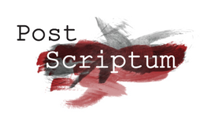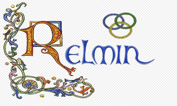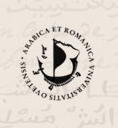MEDhis es un consorcio de investigadores en el campo de los estudios mediterráneos cuyas líneas de investigación se centran en el análisis social, cultural, artístico y arqueológico de las relaciones del occidente cristiano, islámico, judío y bizantino en el periodo medieval y la temprana edad moderna, en las que el Mediterráneo obtuvo su definición geográfica más amplia posible. MEDhis está especialmente interesado en lo concerniente a metodología e historiografía vinculadas con toda forma de cambio y sus dinámicas en el Mediterráneo, la transmisión del conocimiento en la formación y transformación de sus lenguajes políticos, ideológicos y estéticos, el papel de las instituciones en el desarrollo de las sociedades, y la acción de los artefactos en contextos religiosos, políticos, sociales o económicos.
PIMIC (Poder e Instituciones en la Edad Media Cristiana y Musulmana) es un proyecto de colaboración formado por un equipo de medievalistas de Occidente, arabistas y bizantinistas, socios de prestigiosas instituciones académicas, y dos compañías del sector privado. PIMIC coordina los trabajos académicos pre y postdoctorales, dirigiendo las cuestiones particulares hacia diferentes perspectivas, pero integradas en un programa de investigación común y más ambicioso que parte de una pregunta vital para la historia: “¿Por qué ciertas clases de institucionalización y continuidad institucional vienen a caracterizar gobiernos y sociedades en la cristiandad desde la Baja Edad Media, pero no en el mundo islámico, mientras que a la inversa se podría haber predicho sobre la situación de base de la Alta Edad Media?”
Knowledge, heresy and political culture in the Islamic West (8th-15th centuries), it is an Advanced Research Grant – European Research Council, PI: Maribel Fierro.
How are religious and non-religious knowledge linked to social and political processes such as those of inclusion and exclusion? How does knowledge contribute to the formation of a political culture? In the Western Mediterranean there were two specific moments when the political projects of rulers were closely intertwined with ambitious cultural programmes: the Almohad caliphate (12th-13th centuries) and the reign of Alphonso X the Wise (r. 1252-1284). It does not seem possible to study separately these two episodes of ‘political and cultural revolution’, in the same way that it has been for long accepted the intimate relationship between the Fatimid caliphate and the reign of the emperor Frederic II (1220-1250).
Archivo Digital de la Escritura Cotidiana en Portugal y España en la Edad Moderna. El proyecto P.S. (Post Scriptum) tiene como finalidad recoger y publicar cartas particulares portuguesas y españolas escritas durante la Edad Moderna (desde el s. XVI hasta inicios del s. XIX) por personas pertenecientes a diferentes estratos sociales. Los documentos (en su mayoría inéditos) se conservaron como prueba instrumental dentro de procesos de tribunales civiles y religiosos. La publicación de las cartas se hará online e incluirá: reproducción de cada facsímile; transcripción del correspondiente texto y su versión modernizada (en la lengua original y en inglés); anotación morfológica y sintáctica; clasificación histórico-lingüística; contextualización social y situacional de los enunciados. El equipo está compuesto por investigadores especializados en diferentes disciplinas científicas.
The Center for the Study of Conversion and Inter-Religious Encounters is a group under the scientific management of Prof. Harvey Hames of the Ben-Gurion University of the Negev, consisting of researchers from the Ben-Gurion University of the Negev, Bar-Ilan University, the Hebrew University, the Open University and University of Haifa. Conversion from one religion to another is a significant moment, not only for the person converting, but also for the religious community abandoned and the one adopted. Historical materials contain records of thousands of inter-religious conversions (individual as well as mass conversions), which can shed light on religious, social, political and legal phenomena relevant for understanding how religious communities function, how they deal with questions of identity and how and why they erect boundaries. Conversion can also illuminate the internal politics and structures of a religious community, how they interact with those perceived as “others”, as well as the dynamics of minority-majority cultures living side by side. This I-CORE will provide an analytical framework for examining political, social, religious and legal issues, communal and religious boundaries, the transfer of knowledge, and the ability to compare the process of conversion over long periods of time and between different geographical settings.
RELMIN (The Legal Status of RELigious MINorities in the Euro-Mediterranean World, 5th-15th centuries) is a research project mobilising an international team based at the Maison des Sciencies de l'Homme Ange-Guépin in Nantes. RELMIN collects, publishes and studies legal texts defining the status of religious minorities in pre-modern Europe, offering a wide-ranging outlook onto the debates in 21st century European societies, where increasing trends to secularisation as well as the simultaneous reaffirming of religious identities are potential sources of conflict. European religious diversity has its roots in the practice of medieval societies. Medieval European polities, Christian and Muslim, granted protected and inferior status to selected religious minorities. The study of the legal sources of Medieval religious cohabitation shows that medieval societies, like our own, underwent constant change and that religious cohabitation, while of course not always peaceful, has been the rule rather than the exception in European history. RELMIN is building a database of legal texts, a new major interdisciplinary research tool on the legal status of religious minorities in medieval Europe, and is organising a series of workshops, seminars and an international conference through the period 2010-2015.
Seminario de Estudios Árabo-Románicos (SEAR) es un grupo de trabajo de la Universidad de Oviedo, constituido en torno al área de Estudios Árabes e Islámicos, que está integrado por profesores de distintas especialidades y departamentos y por otros investigadores asociados. Tiene por objetivo el estudio de las relaciones, contactos e influencias lingüísticas, literarias y textuales entre el dominio árabe y las lenguas romances. Se da así continuidad a una tradición docente e investigadora de la universidad ovetense orientada en principio a los textos aljamiado-moriscos y extendida ahora también a otros campos fronterizos de la Filología Árabo-Románica. El SEAR desarrolla proyectos y trabajos de investigación en los ámbitos propios de la Romania Arabica y de su contexto histórico-cultural, a la vez que promueve actividades académicas (congresos, cursos, conferencias), así como tareas de recopilación bibliográfica y documental.






